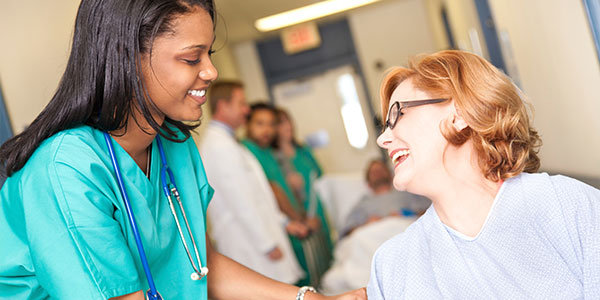Kidney transplant isn’t an isolated surgical procedure; you experience its life-changing impacts long before the actual operation and for the rest of your life. As your health partner, Sutter Health will help guide you through all the issues—practical, emotional, spiritual and more—before surgery, throughout your recovery and anytime you need us in the future.
Pre-Transplant Care
Excellent medical care is only part of our transplant program’s success. Of equal importance is the time we spend with you and your family to ensure you’re comfortable and informed while you wait for your operation. Doctors, nursing staff, social workers, pharmacists and dieticians answer any questions during every step of the process. Your team also includes consultants in other medical specialties, as well as onsite pathologists trained and experienced in the unique issues of transplantation.
During your wait for a kidney transplant, we suggest these steps to ensure a smooth process:
- Keep your transplant team updated while you’re on the waiting list. Call your transplant coordinator if you have any changes to your contact information, insurance, doctor or dialysis unit, and medical condition.
- Identify your personal support team.
- Clarify your transportation plans to and from San Francisco for your transplant and for three to six weeks following transplant when you are unable to drive.
- Make sure your support team members also arrange their transportation and lodging plan. They will need money for incidentals such as gas, bridge tolls, parking, lodging and food. If they require an overnight stay in San Francisco, we can offer several suggestions.
- If you have disability forms, bring them with you to the hospital and give them to the Kidney Team before you are discharged.
When you get close to being called in for a transplant, we will contact you to schedule a re-evaluation appointment to check your medical status and conduct blood tests. You will also meet with our kidney transplant social worker. We want to ensure nothing will prevent you from receiving a transplant when called to the hospital.

Immediately prior to the operation, your transplant doctor will check for fever, infections or other serious conditions that may prevent surgery. You’ll undergo several blood tests as well as a chest X-ray and EKG. You may also receive dialysis. After these preparations, you will be taken to the operating room.
Post-Transplant Care
First, you’ll recover in the hospital’s medical-surgical intensive care unit (MSICU), where you’ll be closely monitored for 24 hours. Once your vital signs stabilize and the new kidney is working, you’ll move to the regular nursing floor for continued care. Your bladder catheter will drain urine and help your bladder heal for about four or five days. Following removal, you will be able to pass urine normally.
The transplant nephrologist heads your post-transplant team, which includes transplant nurses, a transplant social worker and a dietitian. They’ll work with you to carefully personalize the medications, foods and habits you need for good kidney function. Typically, you’ll stay in the hospital for four to seven days.
After your hospital discharge, you’ll be asked to return to the San Francisco clinic for one or two visits, and then you can receive follow-up care at one of our outreach clinics across Northern California and Nevada. We will arrange for ongoing laboratory work at sites near your home.
How often you visit the clinic depends on your individual needs. As you continue to recover, you’ll need fewer visits. We will slowly integrate our care with that given by your own nephrologist or primary care physician to ensure a smooth and continuous transition. Eventually, we’ll only need to see you once a year. However, your transplant team remains on constant standby and is available at any time to guide you through the healing process and back to a more active life.









